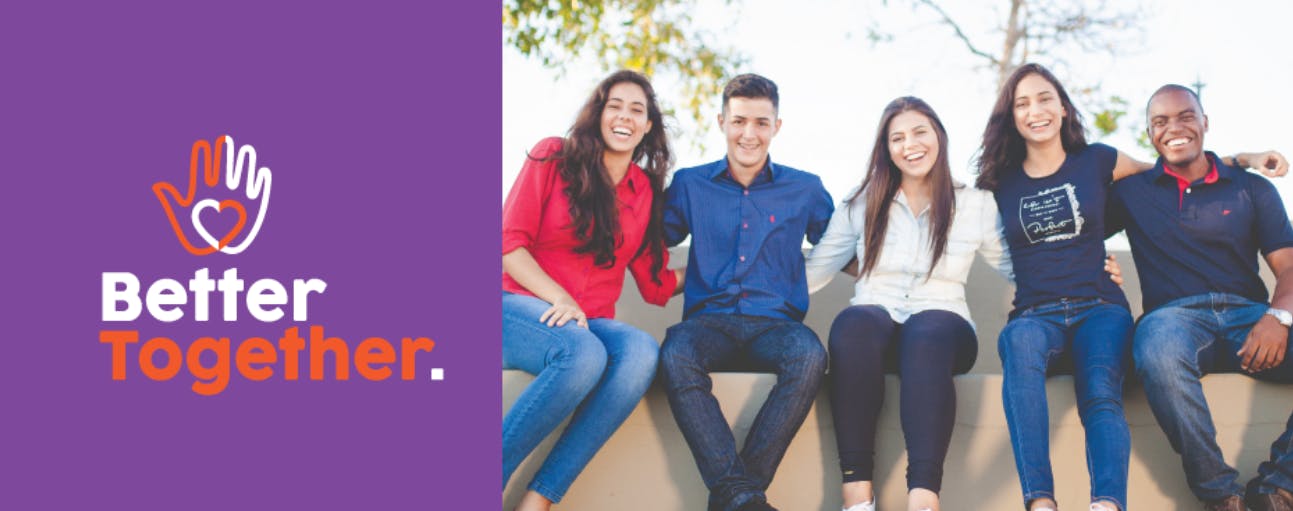FAQs
- Refugee Welcome Zone Georges River Council - Multicultural Communities
- Welcoming Cities, a worldwide community of local governments who actively seek to promote inclusion Welcoming Cities | Connecting Thriving Communities
- NSW anti-racism working group
- St George Multicultural Network
What have we been doing?
We acknowledge, support and celebrate the diversity that makes Georges River so unique. We support a range of events that celebrate and promote Aboriginal and Torres Strait Islander peoples and culturally and linguistically diverse cultures and heritage, such as NAIDOC Week, the International Day for the Elimination of Racial Discrimination, Lunar New Year and Refugee Week. Our Diversity and Inclusion Committee provides regular cultural awareness training for Council staff.
We are members of many committees and organisations that work to support diversity and inclusion and make a stand against racism:
What is racism?
Racism is the process by which systems and policies, actions and attitudes create inequitable opportunities and outcomes for people based on race. Racism is more than just prejudice in thought or action. (Australian Human Rights Commission).
| Interpersonal Racism or 'everyday racism' | Racism that occurs in interactions between individuals or groups of people, often in everyday settings. It can come in the form of abuse, harassment, humiliation, exclusion or expressed in jokes or comments. |
| Systemic Racism | Can be more difficult to identify, because it is often so entrenched in our societies or institutions that it is perceived as ‘normal’. It refers to cultural norms, laws, ideologies, policies and practices that result in unequitable treatment, opportunities and outcomes. |
| Microaggressions | Include those casual everyday racist incidents such as making racist jokes, referring to racial stereotypes or denying the existence of racism. |
Effects of Racism
Racism makes us sick. Studies show that for people who experience racism, there is greater chance of experiencing anxiety and depression.
You may have seen this advertisement by Beyond Blue – strong messaging for long term effects of racism.
It is not just mental health and wellbeing that is impacted. Direct experiences of racism have been shown to contribute to a range of negative physical outcomes, such as heart disease, high blood pressure and diabetes.
Check out these peer reviewed articles from the BMC Public Health Journal:
What can you do to stand up and challenge racism?
A good ally to people who experience racism is someone who actively recognises and addresses racial inequality around them. It is about being aware of inequality, calling it out where it exists, listening to people who experience it, and elevating their voices.
There are some helpful resources on how to respond to racism developed by the Australian Human Rights Commission campaign Racism. It Stops With Me!
Check out Western Sydney University's Bystander Anti-Racism Campaign. The project developed an understanding of bystander anti-racism as a means of countering racism.
Did you know, almost 40 per cent of all racist incidents occur in public spaces, including on public transport. This video aims to teach bystanders what they can do when they witness racism in a public space.
Reporting Racism
If you witness or experience racism, you may want to report it, seek support, or support those who have been negatively impacted.
You should always call the police on 000 if you think you or somebody else may be in danger.
There are several ways that you can lodge a complaint about racism or discrimination with the Australian Human Rights Commission:
Phone | Info line: 1300 656 419 (local call) TTY: 1800 620 241 (toll free) |
Post | Australian Human Rights Commission |
| Online | Complaints | Australian Human Rights Commission |
You can also report in the following ways:
For an incident that takes place online. | |
If you believe that you have experienced discrimination, sexual harassment, vilification or victimisation, you can make a complaint. You must put your complaint in writing. | |
The First Nations Racism Register is a simple and secure way for people to report incidents of racism and discrimination towards First Nations Peoples. | |
Making a report to the Islamophobia Register does not involve a formal investigation, however it is a secure reporting mechanism to build knowledge around incidents of Islamophobia and anti-Muslim sentiments that are occurring across Australia. | |
You can complete the COVID-19 Racism Incident Report to help collect data around incidents of racism for Australians who are of Asian background. |
You can access additional resources via:

